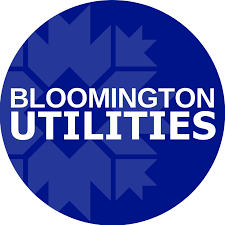
BLOOMINGTON – City of Bloomington Utilities (CBU) published their annual drinking water quality report, providing information about local drinking water quality, data from tests conducted the previous year, and contact information for any questions or concerns.
The 2022 report details 13 contaminants detected in Bloomington’s drinking water during 2021, such as disinfectant byproducts (DBPs), lead, and copper, and meet all federal standards for safe drinking water. More than 65 additional potential contaminants were tested for and not detected, and thus are not listed in the report. Interested persons can find the report at bloomington.in.gov/water-quality-report.pdf.
As part of the Safe Drinking Water Act of 1974, the Environmental Protection Agency (EPA) requires community water systems to deliver a Consumer Confidence Report, also known as an annual drinking water quality report, to their customers. In addition to the annual report, the City updates data about drinking water at its open data portal, B-Clear. Datasets include current and historic information about lead and copper, organic matter, and DBPs. In all, the site comprises 15 datasets relating to drinking water, wastewater, and stormwater including those tracking plant energy consumption, sanitary sewer overflows, and the results of the COVID-19 monitoring program CBU has participated in since August 2020, among other information.
“The City is committed to providing healthy drinking water for all our water customers, together with transparency about its quality and condition,” said Mayor John Hamilton. “I commend CBU for their stewardship of our water, and our natural environment as a whole, and encourage residents to explore this year’s water report to learn more about our continued compliance with all federal safety standards.”
If you have questions about the annual drinking water quality report, or request a paper copy, contact CBU’s Water Quality team at wq@bloomington.in.gov or 812-349-3655.



